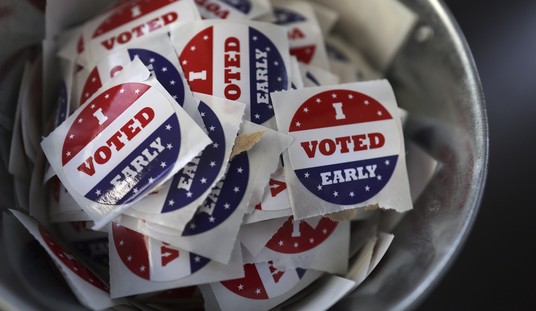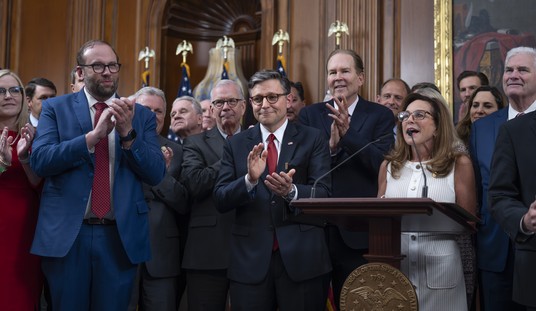Two hundred thirty seven years ago, our forefathers sat in a hot room with closed windows arguing over the future of the thirteen colonies they represented. For a while they had thought of reconciliation with their motherland. But over time it became clear that neither King nor Parliament were interested in anything other than submission.
These fifty-six men did what had not been done before them.
They outlined their grievances on paper, declared their independence, and signed their names so both King and Parliament would know who the traitors were. The act was treason punishable by death. Some of them did die. Some were bankrupted. Many lost their homes and property. Some saw their wives and children taken and abused. But none recanted. All held firm.
237 years later we view the unanimous Declaration of the thirteen united States of America in the abstract. The grievances are distant if not surreal. But it was very real to them.
The United States of America today stands 69 years removed from D-Day.
D-Day was 79 years from the end of the Civil War, and 81 years removed from Gettysburg, which we are now 150 years separated from in time and history.
The beginning of the Civl War was 85 years from 1776 and only 72 years from the constitution being enacted.
The Revolution was only 88 years from the Glorious Revolution — a revolution from which we are separated by a chasm of 325 years.
It was the Glorious Revolution that so influenced our founders. It was not abstract to them. It was not far removed. It was an event in the lifetimes of some of their grand parents. Parliament’s supremacy was asserted. The British subjects became citizens and acquired certain rights under the Bill of Rights of 1689 while others from the Magna Carta were reinforced. Among the rights derived from the Glorious Revolution were prohibitions on taxation without representation in Parliament, prohibitions on a standing army, the right to petition the King without prosecution, the prohibition on dispensing with Acts of Parliament, and the prohibition of fines and forfeitures before convictions of crimes.
The American colonists saw themselves as British citizens, not just subjects. They saw themselves as heirs to a Glorious Revolution and the Bill of Rights that sprang therefrom. These events were not even a century beyond them. They wanted their rights and when King and Parliament would not grant them those rights they rebelled.
Prudence, indeed, will dictate that Governments long established should not be changed for light and transient causes; and accordingly all experience hath shewn, that mankind are more disposed to suffer, while evils are sufferable, than to right themselves by abolishing the forms to which they are accustomed. But when a long train of abuses and usurpations, pursuing invariably the same Object evinces a design to reduce them under absolute Despotism, it is their right, it is their duty, to throw off such Government, and to provide new Guards for their future security.
The colonists — the revolutionaries — did not want something new, but something old. By 1776, eighty-eight years after their Glorious Revolution, the colonists realized they would have to throw off the old form of government for something new in order to gain back those rights they realized neither Crown nor Government acknowledged they had. To King George and the men of the British Parliament, these were colonists, a class of men and women not heirs to the Glorious Revolution and most certainly not true British citizens.
The colonists engaged in a conservative revolution — a revolution not for something wholly new, but for something 88 years old. They only rebeled for “new Guards for their future security” when neither King nor Parliament would grant them what they thought they already had: life, liberty, and the pursuit of happiness.
What we find today to be so abstract — gun rights written into our constitution, prohibits on quartering soldiers, checks and balances and clear limits on power drawn up by men deeply skeptical of themselves and others with power — were not abstract notions to our founders. They were real. They were present. Most importantly, they were worth fighting for and, if need be, dying for.
More than two centuries now separate us from our founding fathers. The liberties they fought for were liberties to thrive absent the heavy hand of government. These days now most often the recitation of liberties from the people are those things they can do so long as government provides a safety net to ensure a soft landing in the event of failure.
Failure to our founders meant hanging. Would you this day pledge your life and be willing to die for your cause? Would you?
Those fifty-six men were willing to.
In the heat of July in room full of flies with no circulating air those men debated the future of the colonies. On July 2nd, by unanimous declaration, they proclaimed the colonies the united States of America, setting the date of adoption of the declaration as July 4, 1776. The unity then was one of purpose at the time, not unity as one nation. But that would come.
In even hotter August those men would go to Philadelphia to sign their names and make public the declaration of their treason.
And for the support of this Declaration, with a firm reliance on the protection of divine Providence, we mutually pledge to each other our Lives, our Fortunes and our sacred Honor.
What they were prepared to lose remains to this very day our gain. We are 237 years removed from that time, but we should all pray we never remove ourselves so far from the spirit of 1776.
[A]ppealing to the Supreme Judge of the world for the rectitude of our intentions, do, in the Name, and by Authority of the good People of these Colonies, solemnly publish and declare, That these United Colonies are, and of Right ought to be Free and Independent States
Have a wonderful Independence Day.
IN CONGRESS, July 4, 1776.
The unanimous Declaration of the thirteen united States of America,
When in the Course of human events, it becomes necessary for one people to dissolve the political bands which have connected them with another, and to assume among the powers of the earth, the separate and equal station to which the Laws of Nature and of Nature’s God entitle them, a decent respect to the opinions of mankind requires that they should declare the causes which impel them to the separation.
We hold these truths to be self-evident, that all men are created equal, that they are endowed by their Creator with certain unalienable Rights, that among these are Life, Liberty and the pursuit of Happiness.–That to secure these rights, Governments are instituted among Men, deriving their just powers from the consent of the governed, –That whenever any Form of Government becomes destructive of these ends, it is the Right of the People to alter or to abolish it, and to institute new Government, laying its foundation on such principles and organizing its powers in such form, as to them shall seem most likely to effect their Safety and Happiness. Prudence, indeed, will dictate that Governments long established should not be changed for light and transient causes; and accordingly all experience hath shewn, that mankind are more disposed to suffer, while evils are sufferable, than to right themselves by abolishing the forms to which they are accustomed. But when a long train of abuses and usurpations, pursuing invariably the same Object evinces a design to reduce them under absolute Despotism, it is their right, it is their duty, to throw off such Government, and to provide new Guards for their future security.–Such has been the patient sufferance of these Colonies; and such is now the necessity which constrains them to alter their former Systems of Government. The history of the present King of Great Britain is a history of repeated injuries and usurpations, all having in direct object the establishment of an absolute Tyranny over these States. To prove this, let Facts be submitted to a candid world.
He has refused his Assent to Laws, the most wholesome and necessary for the public good.
He has forbidden his Governors to pass Laws of immediate and pressing importance, unless suspended in their operation till his Assent should be obtained; and when so suspended, he has utterly neglected to attend to them.
He has refused to pass other Laws for the accommodation of large districts of people, unless those people would relinquish the right of Representation in the Legislature, a right inestimable to them and formidable to tyrants only.
He has called together legislative bodies at places unusual, uncomfortable, and distant from the depository of their public Records, for the sole purpose of fatiguing them into compliance with his measures.
He has dissolved Representative Houses repeatedly, for opposing with manly firmness his invasions on the rights of the people.
He has refused for a long time, after such dissolutions, to cause others to be elected; whereby the Legislative powers, incapable of Annihilation, have returned to the People at large for their exercise; the State remaining in the mean time exposed to all the dangers of invasion from without, and convulsions within.
He has endeavoured to prevent the population of these States; for that purpose obstructing the Laws for Naturalization of Foreigners; refusing to pass others to encourage their migrations hither, and raising the conditions of new Appropriations of Lands.
He has obstructed the Administration of Justice, by refusing his Assent to Laws for establishing Judiciary powers.
He has made Judges dependent on his Will alone, for the tenure of their offices, and the amount and payment of their salaries.
He has erected a multitude of New Offices, and sent hither swarms of Officers to harrass our people, and eat out their substance.
He has kept among us, in times of peace, Standing Armies without the Consent of our legislatures.
He has affected to render the Military independent of and superior to the Civil power.
He has combined with others to subject us to a jurisdiction foreign to our constitution, and unacknowledged by our laws; giving his Assent to their Acts of pretended Legislation:
For Quartering large bodies of armed troops among us:
For protecting them, by a mock Trial, from punishment for any Murders which they should commit on the Inhabitants of these States:
For cutting off our Trade with all parts of the world:
For imposing Taxes on us without our Consent:
For depriving us in many cases, of the benefits of Trial by Jury:
For transporting us beyond Seas to be tried for pretended offences
For abolishing the free System of English Laws in a neighbouring Province, establishing therein an Arbitrary government, and enlarging its Boundaries so as to render it at once an example and fit instrument for introducing the same absolute rule into these Colonies:
For taking away our Charters, abolishing our most valuable Laws, and altering fundamentally the Forms of our Governments:
For suspending our own Legislatures, and declaring themselves invested with power to legislate for us in all cases whatsoever.
He has abdicated Government here, by declaring us out of his Protection and waging War against us.
He has plundered our seas, ravaged our Coasts, burnt our towns, and destroyed the lives of our people.
He is at this time transporting large Armies of foreign Mercenaries to compleat the works of death, desolation and tyranny, already begun with circumstances of Cruelty & perfidy scarcely paralleled in the most barbarous ages, and totally unworthy the Head of a civilized nation.
He has constrained our fellow Citizens taken Captive on the high Seas to bear Arms against their Country, to become the executioners of their friends and Brethren, or to fall themselves by their Hands.
He has excited domestic insurrections amongst us, and has endeavoured to bring on the inhabitants of our frontiers, the merciless Indian Savages, whose known rule of warfare, is an undistinguished destruction of all ages, sexes and conditions.
In every stage of these Oppressions We have Petitioned for Redress in the most humble terms: Our repeated Petitions have been answered only by repeated injury. A Prince whose character is thus marked by every act which may define a Tyrant, is unfit to be the ruler of a free people. Nor have We been wanting in attentions to our Brittish brethren. We have warned them from time to time of attempts by their legislature to extend an unwarrantable jurisdiction over us. We have reminded them of the circumstances of our emigration and settlement here. We have appealed to their native justice and magnanimity, and we have conjured them by the ties of our common kindred to disavow these usurpations, which, would inevitably interrupt our connections and correspondence. They too have been deaf to the voice of justice and of consanguinity. We must, therefore, acquiesce in the necessity, which denounces our Separation, and hold them, as we hold the rest of mankind, Enemies in War, in Peace Friends. We, therefore, the Representatives of the united States of America, in General Congress, Assembled, appealing to the Supreme Judge of the world for the rectitude of our intentions, do, in the Name, and by Authority of the good People of these Colonies, solemnly publish and declare, That these United Colonies are, and of Right ought to be Free and Independent States; that they are Absolved from all Allegiance to the British Crown, and that all political connection between them and the State of Great Britain, is and ought to be totally dissolved; and that as Free and Independent States, they have full Power to levy War, conclude Peace, contract Alliances, establish Commerce, and to do all other Acts and Things which Independent States may of right do. And for the support of this Declaration, with a firm reliance on the protection of divine Providence, we mutually pledge to each other our Lives, our Fortunes and our sacred Honor.














Join the conversation as a VIP Member